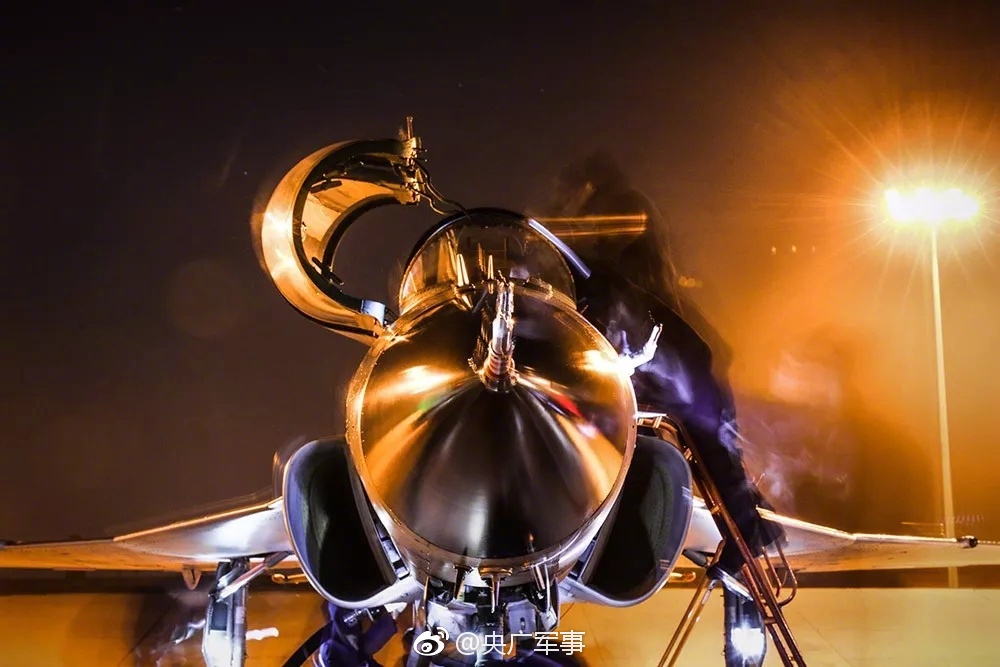
1. The five functions of the operating system are processor management, memory management, device management, file management and job management. Processor management The most basic function of processor management is to process interrupt events. After configuring the operating system, various events can be processed.
2. The main function of the computer operating system is process management, and its work is mainly process scheduling. In the case of a single user and a single taskNext, the processor is only monopolized by one user's task, and the process management work is very simple.
3. Operating System (abbreviation: OS) is a group of interrelated system software programs that supervise and control computer operation, use and run hardware, software resources and provide public services to organize user interaction.
4. Five major management functions of the operating system: (1) Job management: including tasks, interface management, human-computer interaction, graphical interface, voice control and virtual reality, etc. ( 2) File management: also known as information management. ( 3) Storage management: The essence is the management of storage "space", which mainly refers to the management of the main memory.
Any information system has five basic functions, namely: information collection and recording (input); information storage; information processing; information transmission; information output .
According to the functional introduction of the information system, the information system has five basic functions: input, storage, processing, output and control. Different functions have different functions, such as input function: the input function of the information system is determined by the purpose to be achieved by the system, the ability of the system and the permission of the information environment.
Five basic functions of the information system: input, storage, processing, output and control. Input function: The input function of the information system is determined by the purpose to be achieved by the system, the ability of the system and the permission of the information environment.Storage function: Storage function refers to the ability of the system to store various information and data. Mainly including: statistical functions.
The operating system has five functions: processor management: mainly controls and manages the work of the CPU. Storage management: mainly allocate and manage memory. Device management: mainly manage basic input and output devices. File management: responsible for the organization, storage, operation and protection of computer files.
The functions of the computer operating system include: processor management, memory management, device management, file management, job management and other functional modules. Processor management. The most basic function of processor management is to handle interrupt events. The processor can only detect interrupt events and generate interrupts and cannot process them.
The main function of the computer operating system is process management, and its main work is process scheduling. In the case of a single user and a single task, the processor is only monopolized by one user's task, and the work of process management is very simple.
The main functions of the operating system are process and processor management, job management, storage management, device management and file management, as follows: process and processor management. Because the execution of the program must rely on the processor, only one program flow can be processed and executed at any time. Homework management.
I) Processor management The most basic function of processor management is to handle interrupt events. The processor can only detect interrupt events and generate interrupts, and cannot handle these interrupt events. After configuring the operating system, all types of events can be handled.Another function of processor management is processor scheduling.
Five management functions of the operating system: job management: including tasks, interface management, human-computer interaction, graphical interface, voice control and virtual reality, etc. File management: also known as information management. Storage management: The essence is the management of storage "space", which mainly refers to the management of the main memory.

The storage management function of the operating system is to manage memory resources. It mainly realizes memory allocation and recovery, storage protection and memory expansion. The device management of the device management operating system is responsible for allocating and recycling external devices, and controlling external devices to operate according to the requirements of user programs.
The functions of the computer operating system include: processor management, memory management, device management, file management, job management and other functional modules. Processor management. The most basic function of processor management is to handle interrupt events. The processor can only detect interrupt events and generate interrupts and cannot process them.
The five functions of the operating system are processor management, memory management, device management, file management and job management.Processor management The most basic function of processor management is to process interrupt events. After configuring the operating system, various events can be processed.
UEFA Champions League-APP, download it now, new users will receive a novice gift pack.
1. The five functions of the operating system are processor management, memory management, device management, file management and job management. Processor management The most basic function of processor management is to process interrupt events. After configuring the operating system, various events can be processed.
2. The main function of the computer operating system is process management, and its work is mainly process scheduling. In the case of a single user and a single taskNext, the processor is only monopolized by one user's task, and the process management work is very simple.
3. Operating System (abbreviation: OS) is a group of interrelated system software programs that supervise and control computer operation, use and run hardware, software resources and provide public services to organize user interaction.
4. Five major management functions of the operating system: (1) Job management: including tasks, interface management, human-computer interaction, graphical interface, voice control and virtual reality, etc. ( 2) File management: also known as information management. ( 3) Storage management: The essence is the management of storage "space", which mainly refers to the management of the main memory.
Any information system has five basic functions, namely: information collection and recording (input); information storage; information processing; information transmission; information output .
According to the functional introduction of the information system, the information system has five basic functions: input, storage, processing, output and control. Different functions have different functions, such as input function: the input function of the information system is determined by the purpose to be achieved by the system, the ability of the system and the permission of the information environment.
Five basic functions of the information system: input, storage, processing, output and control. Input function: The input function of the information system is determined by the purpose to be achieved by the system, the ability of the system and the permission of the information environment.Storage function: Storage function refers to the ability of the system to store various information and data. Mainly including: statistical functions.
The operating system has five functions: processor management: mainly controls and manages the work of the CPU. Storage management: mainly allocate and manage memory. Device management: mainly manage basic input and output devices. File management: responsible for the organization, storage, operation and protection of computer files.
The functions of the computer operating system include: processor management, memory management, device management, file management, job management and other functional modules. Processor management. The most basic function of processor management is to handle interrupt events. The processor can only detect interrupt events and generate interrupts and cannot process them.
The main function of the computer operating system is process management, and its main work is process scheduling. In the case of a single user and a single task, the processor is only monopolized by one user's task, and the work of process management is very simple.
The main functions of the operating system are process and processor management, job management, storage management, device management and file management, as follows: process and processor management. Because the execution of the program must rely on the processor, only one program flow can be processed and executed at any time. Homework management.
I) Processor management The most basic function of processor management is to handle interrupt events. The processor can only detect interrupt events and generate interrupts, and cannot handle these interrupt events. After configuring the operating system, all types of events can be handled.Another function of processor management is processor scheduling.
Five management functions of the operating system: job management: including tasks, interface management, human-computer interaction, graphical interface, voice control and virtual reality, etc. File management: also known as information management. Storage management: The essence is the management of storage "space", which mainly refers to the management of the main memory.

The storage management function of the operating system is to manage memory resources. It mainly realizes memory allocation and recovery, storage protection and memory expansion. The device management of the device management operating system is responsible for allocating and recycling external devices, and controlling external devices to operate according to the requirements of user programs.
The functions of the computer operating system include: processor management, memory management, device management, file management, job management and other functional modules. Processor management. The most basic function of processor management is to handle interrupt events. The processor can only detect interrupt events and generate interrupts and cannot process them.
The five functions of the operating system are processor management, memory management, device management, file management and job management.Processor management The most basic function of processor management is to process interrupt events. After configuring the operating system, various events can be processed.
UEFA Champions League live streaming app
author: 2025-01-12 08:57 bingo plus update today Philippines
bingo plus update today Philippines
883.36MB
Check Bingo Plus stock
Bingo Plus stock
848.94MB
Check UEFA Champions League standings
UEFA Champions League standings
235.58MB
Check Hearthstone Arena win rate
Hearthstone Arena win rate
217.72MB
Check Hearthstone Arena Tier List
Hearthstone Arena Tier List
378.51MB
Check UEFA European championship
UEFA European championship
437.69MB
Check Casino free 100 no deposit
Casino free 100 no deposit
273.75MB
Check Bingo Plus
Bingo Plus
742.48MB
Check bingo plus update today Philippines
bingo plus update today Philippines
931.19MB
Check UEFA Champions League live
UEFA Champions League live
737.77MB
Check UEFA Champions League
UEFA Champions League
865.64MB
Check Casino Plus free 100
Casino Plus free 100
994.63MB
Check Hearthstone arena class win rates reddit
Hearthstone arena class win rates reddit
351.66MB
Check PAGCOR online casino free 100
PAGCOR online casino free 100
363.46MB
Check Bingo Plus
Bingo Plus
785.25MB
Check European Cup live
European Cup live
919.13MB
Check DigiPlus
DigiPlus
979.36MB
Check Hearthstone arena class win rates reddit
Hearthstone arena class win rates reddit
124.69MB
Check PAGCOR online casino free 100
PAGCOR online casino free 100
455.34MB
Check TNT Sports
TNT Sports
447.67MB
Check bingo plus update today Philippines
bingo plus update today Philippines
715.92MB
Check 100 free bonus casino no deposit GCash
100 free bonus casino no deposit GCash
131.35MB
Check Bingo Plus stock
Bingo Plus stock
571.79MB
Check Free sports events uefa champions league app android
Free sports events uefa champions league app android
299.92MB
Check UEFA Champions League live streaming free
UEFA Champions League live streaming free
457.49MB
Check Casino redeem
Casino redeem
595.79MB
Check DigiPlus stock
DigiPlus stock
273.97MB
Check DigiPlus fair value
DigiPlus fair value
794.13MB
Check UEFA Champions League live streaming free
UEFA Champions League live streaming free
354.88MB
Check Bingo Plus
Bingo Plus
856.47MB
Check UEFA Champions League live
UEFA Champions League live
943.13MB
Check Europa League app
Europa League app
598.64MB
Check DigiPlus stock
DigiPlus stock
591.59MB
Check Hearthstone arena class win rates reddit
Hearthstone arena class win rates reddit
662.76MB
Check casino plus free 100
casino plus free 100
395.39MB
Check Casino Plus free 100
Casino Plus free 100
466.24MB
Check
Scan to install
UEFA Champions League to discover more
Netizen comments More
676 Casino Plus login register
2025-01-12 09:22 recommend
122 DigiPlus
2025-01-12 08:15 recommend
2763 App to watch Champions League live free
2025-01-12 08:10 recommend
745 UEFA EURO
2025-01-12 07:32 recommend
1431 Casino Plus free 100
2025-01-12 07:28 recommend